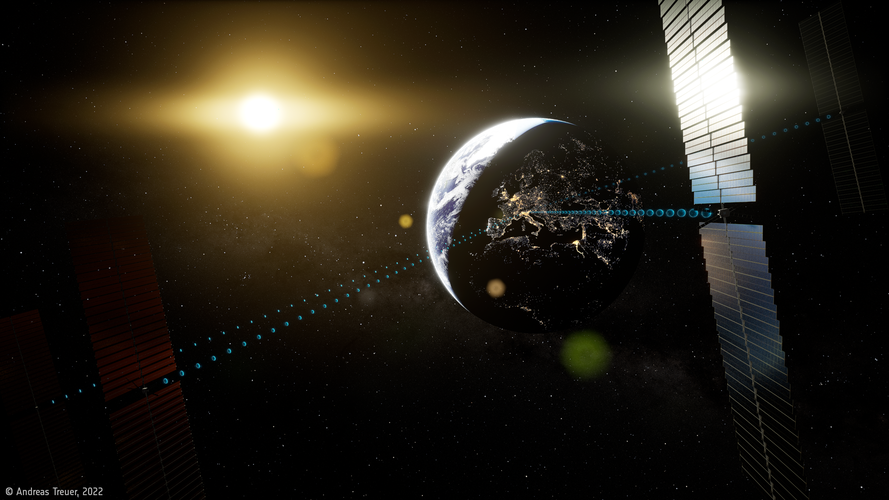Humanity’s energy problem

The energy industry – particularly coal, oil and gas – is a strong contributor to the climate crisis. In an effort to mitigate these impacts, Europe is advancing a transition to renewable power sources with the aim of reaching carbon neutrality by 2050.
Sanjay Vijendran, ESA’s lead for the SOLARIS initiative, says, “Net zero presents many challenges, including the fluctuating outputs of current renewables like wind and ground-based solar farms.
“Looking beyond 2050, the energy requirements of developing nations are expected to rise significantly. This, coupled with intensifying climate impacts, means the need for renewable and reliable sources of power, that can also be scaled up sufficiently, will become ever more pressing.”
Given the uninterrupted nature and scalable potential of space-based solar power, the technology could offer a solution to these current and future energy challenges.
The idea is to collect solar energy in space, where it is continuously available and unaffected by cloud cover or other atmospheric conditions. It is then transmitted wirelessly down to strategically placed receivers connected to the energy grid.



